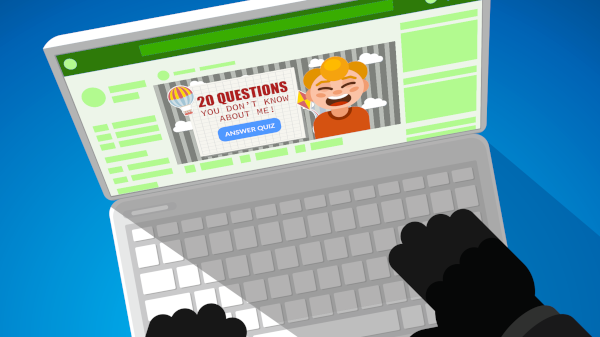Answering quizzes or surveys on social media may seem innocent, but the people behind those questions could have ill intent. They are using a quiz format to gather the personal information they need to access your accounts. Think about it. Who else asks for your pets’ names, your favourite colour, the school and / or university you attended, or your mother’s maiden name? These are questions you use as password reset prompts.
Also when doing one of these personal surveys, you are encouraged to share your results on social media. Doing so may be giving access to your answers to anyone on the internet.
Other quiz risks
Taking these surveys and quizzes, even if they are not scams, can compromise your privacy. These online quizzes learn about you and your preferences and over time that data may be sold to third parties.
You might also have seen IQ tests on your social platforms. You know you have always wanted proof of how smart you are! But these tests can sometimes ask for your phone number or email address before you receive your results. You won’t be feeling so intelligent when you start getting all the junk texts emails!
What can you do?
Our recommendation is not to do any of these types of surveys and quizzes, but if you do or have done in the past, take the following steps:
- Only take quizzes on websites you trust.
- Avoid ones that have you typing in custom answers. Multiple-choice questions are safer, as the answers are already written.
- Read the fine print about how they use your data.
- Think twice before sharing your contact information to get any results.
- Be careful about posting your results on social media and check how much access you are giving that website.
If you are in the midst of a quiz and realise it could be a scam, take a screenshot and write down your answers and if you can delete the answers before submitting, do so. Also, record the name of the user who posted the quiz as it may be a fake account, but all the information you have can be helpful when you report the post to Facebook.
Once you realise you could have given up security-question answers, change your account settings that use that information. Often, you have a few different options to choose from when setting your security prompts. Remember that you can always use a fake answer, but if you do, you will need to keep track of those alternate responses in case you need to recover that account in the future.
Need help securing your online data? Our IT experts can help shore up your cybersecurity. Contact us today for a free no obligation chat.

